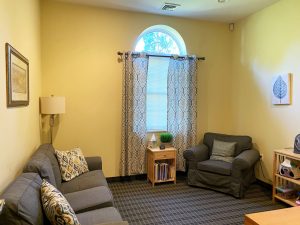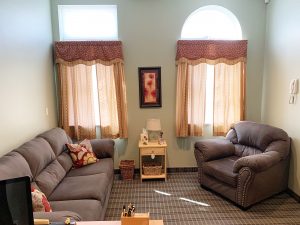Therapy and Testing Services
In addition to in-person sessions, we are pleased to offer a range of teletherapy options where you can receive therapy services from the comfort and convenience of your home or office. Click here for details.
The HVCCT offers a wide array of services that include both therapy and testing. We offer therapy services for children, adolescents, adults, and couples and psychoeducational and giftedness testing for children and adolescents.



- Child and Adolescent Therapy Services
- Therapy for College Students
- Adult Therapy Services
- Couples Therapy Services
- Psychoeducational Testing
- Giftedness Testing
Child and Adolescent Therapy Services
Our therapists provide a warm and supportive environment so that your child or adolescent will feel comfortable and have a positive and productive experience in therapy. Our therapists work collaboratively with children and their parents throughout the assessment and treatment process.
Treatment focuses on teaching children and adolescents specific skills and strategies to improve their mood and/or behavior. A main focus of treatment is to modify inaccurate ways of thinking that are negatively impacting mood and/or behavior. Examples of other therapy skills may include emotional regulation, communication, problem solving, decision making, and social skills training. An overarching goal of treatment is for children and adolescents to feel more confident that they can effectively cope with problems as they come up.
As noted above, our therapists work closely with parents and collaborate in setting and executing treatment goals. We focus on helping parents develop positive strategies and solutions to address their child’s mood and/or behavioral difficulties. We also teach parents the skills that their child is learning in therapy so they can reinforce the skills at home. We greatly value the importance of collaboration and value parents’ input to the therapeutic process.
Adult Therapy Services
Our overall therapeutic approach is goal oriented and evidence-based. Therapists work collaboratively with clients to develop treatment goals that will address their particular areas of concern.
Treatment focuses on teaching clients specific skills and strategies to improve their mood and/or behavior. A main focus of treatment is to help clients identify and change thinking patterns that are negatively impacting mood and behavior. Treatment is tailored to each client. Other skills that are commonly learned in therapy are emotional regulation, communication, problem solving, and decision making. Our goal is for clients to not only learn skills that will help with their current situation, but will also generalize in helping them cope with other difficulties that may come up in the future.
Couples Therapy Services
Our approach to couples therapy involves identifying and modifying areas of difficulty to bring about positive change. Common goals of couples therapy include enhancing communication, reducing conflict, improving physical and emotional intimacy, and improving the overall quality of the relationship. Couples therapy may be the primary treatment modality or may be in combination with individual therapy.
Psychoeducational Testing
Our psychologists have expertise in evaluating the following:
- Intellectual and cognitive functioning, including:
- IQ testing
- Memory
- Attention, Concentration
- Comprehension
- Motor skills
- Problem solving
- Language and communication skills
- Information processing speed
- Executive Functioning
- Learning aptitudes/learning disabilities
- Academic skills
- Personality and emotional development
- Social skills
- Learning environment and school climate
- Eligibility for special education
Based on test results and other clinical information, areas of strength and weakness can be identified and used to construct an individualized treatment plan to help the client maximize his/her potential. Specific feedback is provided where interventions and strategies are recommended. We also assist in making referrals to other health care professionals, such as psychopharmacologists and neurologists as needed.
Giftedness Testing
A gifted child is one who demonstrates high intellectual, creative, or artistic achievement capability, and who needs services and activities that may not be provided by the school in order to fully develop those capabilities. It is estimated that over 5% of the student population in the United States is academically gifted.
If you suspect your child may be gifted, consider having a conference with your child’s teachers to share your observations. A teacher or school counselor may recommend that you have your child tested, which may be required to make a change in the child’s educational placement or curriculum. Even if your school does not offer a specialized program for gifted students, the information obtained from testing can be very helpful in devising strategies for enrichment both in and out of school.
An evaluation for giftedness typically involves cognitive and achievement testing, as well as an interview with parents to obtain a full developmental history. After testing is complete, a feedback session is scheduled in which the evaluator will explain the results and offer recommendations for both home and school. These recommendations include specific information on how to stimulate and encourage the development of your child’s gifts and interests. Recommendations are also made regarding ways to offer appropriate educational enrichment both in and out of the school setting to help give your child the best chance of reaching his/her full potential.

